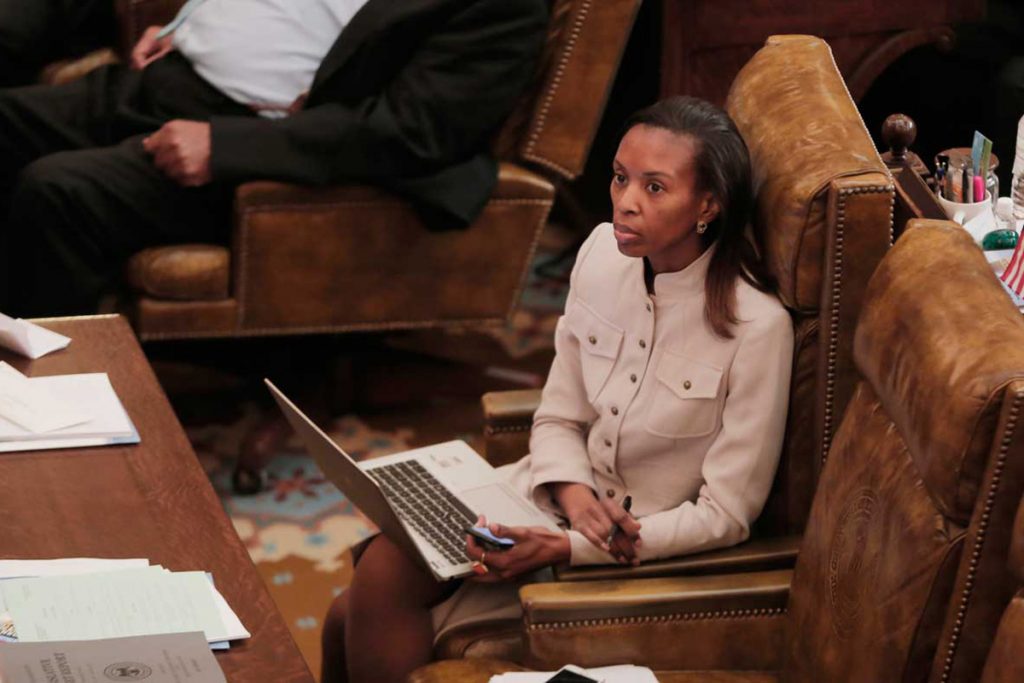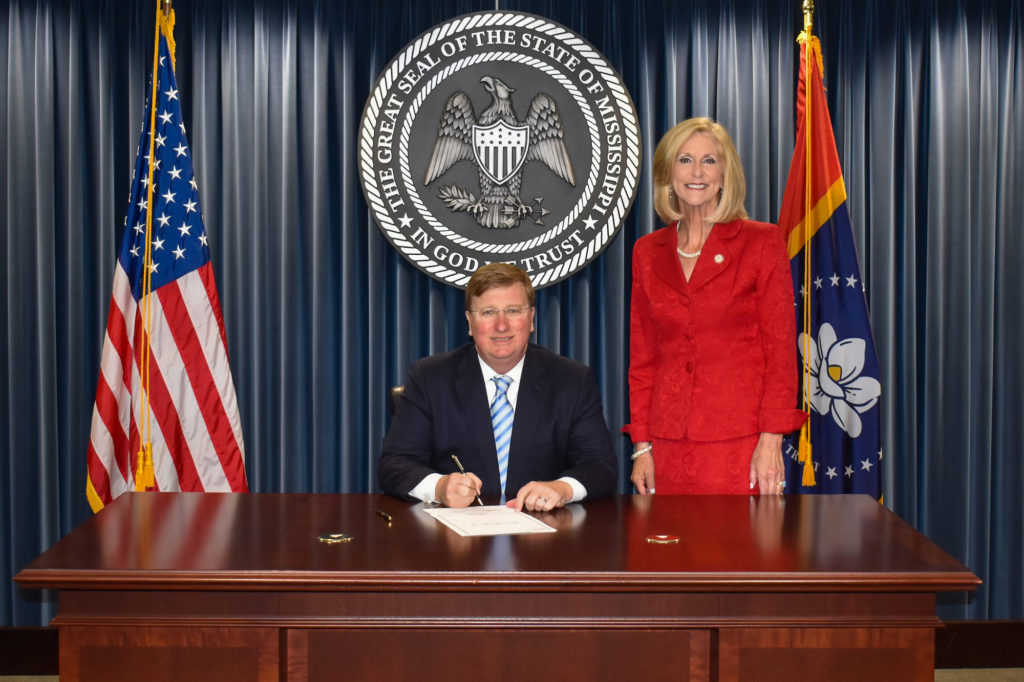Mississippi is no longer the sole state without an equal-pay law on the books after Gov. Tate Reeves signed the Mississippi Equal Pay for Equal Work Act into law Thursday with state Attorney General Lynn Fitch at his side.
“A day to be remembered for decades to come! Thanks to the leadership of Legislators like Angela Cockerham, Brice Wiggins, Nicole Boyd, Dana McLean, Tracy Arnold, and Becky Currie, Equal Pay for Equal Work is now the law in Mississippi,” Fitch, the first woman to hold her position, wrote on her social media channels Thursday.
The legislation’s text says it would prohibit employers from paying “an employee a wage at a rate less than the rate at which an employee of the opposite sex in the same establishment is paid for equal work on a job, the performance of which requires equal skill, effort and responsibility, and which is performed under similar working conditions.”
After the Legislature formally sent the bill to the governor’s office in late March, Rep. Angela Cockerham, an independent, said in a March 31 statement that “with the enactment of this bill, we can address gender pay disparities via a state cause of action.”
“Particularly for Mississippi, it’s especially important that equal pay is moving forward as the number of women in the workforce increases, all while taking care of their families and their own personal needs,” said Cockerham. “It’s been a long time coming, and we’re happy to provide another remedy for our constituents.”
Groups Blasts ‘Sham’ Bill
But the legislation drew criticism from leading equal-pay advocates, including the Mississippi Black Women’s Roundtable, which asked Gov. Reeves to veto the bill, calling it “a sham of an equal pay law.”
“Paying a woman less than a man doing the same job based on her salary history or continuity of employment discriminates against women and caregivers. But this sham ‘equal pay’ bill allows employers to do just that,” the MSBWR said in a March statement. “Without supportive policies—such as pregnancy and breastfeeding accommodations, flexible schedules and access to childcare—many mothers and family caregivers have no choice but to leave the workforce altogether to fulfill their caregiving responsibilities.

“This results in gaps in the continuity of their employment history, through no fault of their own, which can often set these individuals back in terms of pay and opportunities for advancement once they re-enter the workforce.”
The group also criticized the bill, which passed overwhelmingly among Democrats and Republicans in both chambers, for ignoring pay inequalities that affect women of color at a higher rate.
“Not only does this Act fail to protect women and their wages, but it also neglects Mississippi’s essential workers. It only applies to employees who work 40+ hours weekly and employers with five or more employees,” the MSBWR statement said.
“This act is significantly more narrow than the federal Equal Pay Act, which applies to all employers and employees, regardless of size and hours worked. Part-time employees experience pay discrimination and are predominantly women, so it is especially important for them to be protected.”
‘A Good Equal Pay Bill’
In an op-ed the Mississippi Free Press published in February, national equal-pay activist Lilly Ledbetter warned that the legislation risked “widening Mississippi’s gender wage gap and stripping Mississippians of their rights.”
Ledbetter was at the center of a 2007 U.S. Supreme Court case in which she challenged the unequal pay she had received while working at a tire plant in Gadsden, Ala., over a nearly two-decade period.

But the U.S. Supreme Court ruled that, under federal law, she could have sued only within 180 days of her employers’ decision to pay her at a lower rate—not over each subsequent paycheck. In 2009, Congress passed and President Barack Obama signed The Lilly Ledbetter Fair Pay Act, which allows workers to challenge all discriminatory paychecks.
In February, Mississippi Black Women’s Roundtable State Leader Cassandra Welchlin told the Mississippi Free Press that a “good equal pay bill” must include four components: It must address disparities based not only on gender, but also race; it must ban the use of salary history to determine wages; it must provide protections against retaliation; and it must be enforceable so that women can recover damages.
In the past, Gov. Reeves’ actions have raised doubts over whether he would support an equal-pay bill. During his time as lieutenant governor and president of the Mississippi Senate from 2012 until 2020, equal-pay bills repeatedly died without a vote, including ones Welchlin previously endorsed.
The Mississippi Equal Pay For Equal Work Act will become effective starting July 1, 2022.










